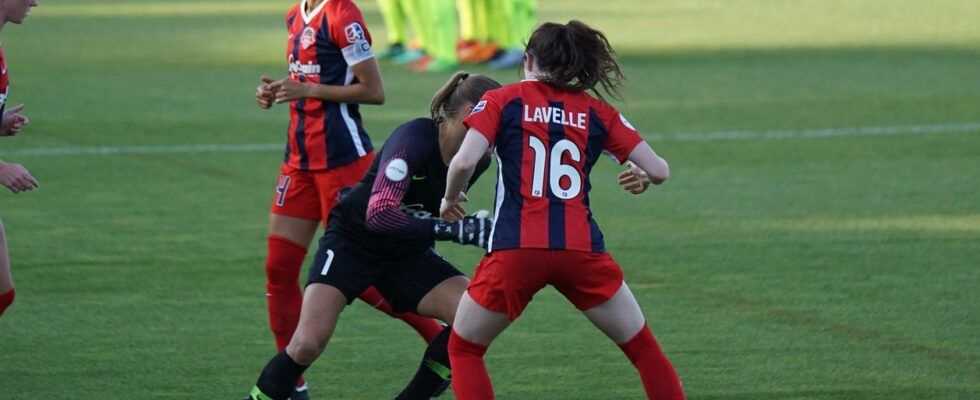In mid-October 2020, a young amateur football referee was assaulted in Val-d'Oise during a match. After a well-attended World Cup and an increase in the number of licensees, has football really finished with its old habits?
The information is reported by our colleagues from France Inter: on Sunday, October 11, during an amateur match, a young woman referee was attacked by the educator of a team, who hit her in the face after having her. overwhelmed with sexist insults. The assistant technical director of the French Football Federation in charge of amateur refereeing, Alain Sars, indicates that the young woman had to leave the match because "his safety was no longer assured". A story that challenges: we knew the sexist sports environment, but at this point? And what about the post-Women's World Cup momentum, with a French Football Federation celebrating the national enthusiasm?
Arbitration, tip of the iceberg
If this aggression is striking, it is not only because of its violence. It is also because the question of arbitration is revealing of the machismo in French football. The proof in figures: if, on amateur fields, the number of female referees has increased by 50% in three years, from 800 to more than 1,100 today, they remain an exception in the field, with only one female referee. for 23 men. And it is not better among the pros, where a woman was appointed for the first time referee of a Ligue 1 match… in 2019! It is the aptly named Stéphanie Frappart who was entitled to this honor, and who is part of the 3% of female professional referees, according to the latest figures from the French Football Federation.
Largely in the minority when it comes to occupying this key role, women are, as a bonus, abused, even more than their male counterparts. Veronica Noseda, co-founder of the feminist football sports association Les Dégommeuses, sheds light on the October 11 affair. "What is scandalous is that the one who is punished is the referee: she has already taken insults, a blow in the jaw and more, if he is prevented from continuing to referee and the manager does not has not been sanctioned, she laments. It shows the difficulty in managing the meeting, between an authority embodied by a woman and teams steeped in sexist stereotypes! "
Don't let anything go
It is in this context of machismo that Veronica Noseda co-founded the Dégommeuses in 2012. The goal of the association: to be able to train on the grounds of Paris and above all, to change the way society looks at women's football, as well as the way soccer players look at sexual and gender minorities. Eight years later, what changes? "Women who play football are a little more socially accepted, and it's easier to start playing sports without being bullied or misunderstood by your family, analyzes the sportswoman. At the same time, as soon as we enter the field of football, the gender injunctions remain extremely strong: yes, it's easier to enter, but once on the pitch, we are taken to task and we must continue to demonstrate that we are women corresponding to the criteria of femininity and not endangering male domination. "
Gender injunctions and sexism therefore die hard. The Degummeuses are confronted with it regularly during their training: "The men's teams want to nibble our slots and teach us how to play, enter the field as we finish the game", explains Veronica Noseda. Is football alone concerned? Unfortunately, no, women encounter many problems in team sports in general. So, in rugby: the player Caroline Thomas recently decided to file a complaint against the sexist and homophobic insults she receives on social networks. A courageous and useful approach, according to the founder of Les Dégommeuses, for whom the fight against sexism involves the refusal to accept these behaviors. Determined, she concludes: "We are told that women have no place on men's ground because it is too violent. But I reverse the point: women have on the contrary their place and it is up to the men's teams to review their position. behaviour !" Notice to footballers: you will have to hang on.
